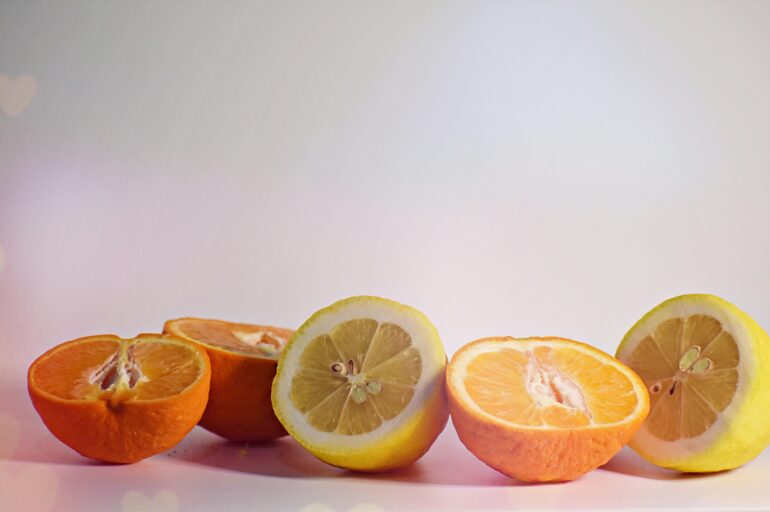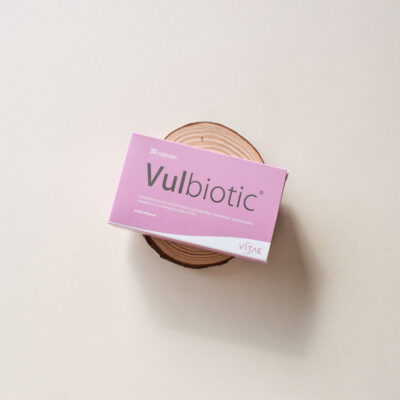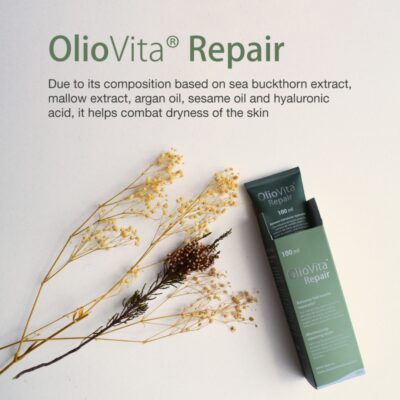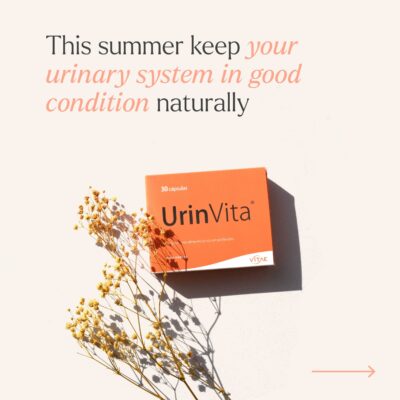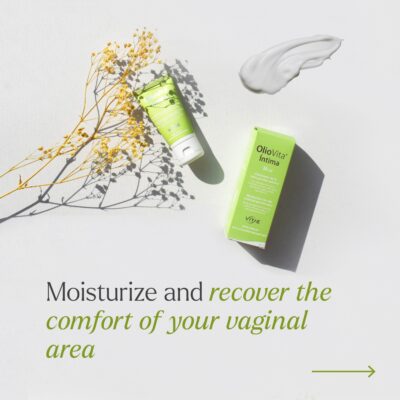Diet is related to having good intimate health, since it plays an essential role in the prevention and management of intimate infections. Consuming a balanced diet, rich in probiotics and prebiotics, vitamins and minerals, can strengthen the immune system, keep the microbiota healthy and reduce the risk of infections. In the next article we will talk about it and how certain foods can influence vaginal well-being.
Connection between diet and vaginal microbiota
The vaginal microbiota is made up of a set of good bacteria, the most common being the Lactobacillus group , which are responsible for maintaining the vaginal pH at a good level and preventing the growth of pathogenic microorganisms. Diet directly influences the composition and balance of this microbiota .
Some of the essential foods for a good vaginal microbiota can be fiber, vitamins and minerals.
Fiber can be found in fruits, vegetables and whole grains, they promote good digestive health and at the same time a good state of the immune system. When the intestine is healthy it can help maintain the proper balance of bacteria we have throughout the body, including vaginal bacteria.
Vitamins and minerals such as C and E, zinc and magnesium are essential for our cellular health and the proper functioning of the immune system, as they contribute to an improved defense against infections .
What foods benefit intimate health
There are certain foods that help intimate health to be in better condition and prevent certain infections. Some of them are the following:
- Probiotics : those live microorganisms found in yogurt, kefir, sauerkraut, pickles, which can help maintain the balance of the vaginal microbiome .
- Prebiotics: These are types of fiber that feed the good bacteria in the intestine and vagina. For example: garlic, onion, bananas, asparagus.
- Foods rich in omega 3: they have anti-inflammatory properties and can help maintain the health of the vaginal mucosa. Such as salmon, sardines, mackerel, and also flax and chia seeds.
- Foods containing Zinc: it is important for the immune system and wound healing, and can help prevent vaginal infections. Almonds, walnuts, pumpkin and sunflower seeds, chicken and turkey are foods rich in zinc that can provide us with good benefits.
- Good hydration: of course, having good hydration is of vital importance to keep the vaginal mucosa hydrated and thus eliminate toxins from the body.
Nutrition according to life stage
Depending on the stage of a woman’s life, nutritional needs will vary. Below, we show which foods will be most appropriate depending on the stage and that are most beneficial for intimate health.
Adolescence
During the stage of adolescence, a woman’s body is exposed to a large number of changes, whether physical or hormonal, therefore, there will have to be a fairly balanced diet. Foods rich in calcium, vitamin D, iron, omega 3 fatty acids and fiber will be the correct ones to provide a woman’s body with what is necessary to maintain good intimate health.
Calcium and vitamin D will help in bone development, such as dairy products, almonds, egg yolk and fatty fish. Iron will be ideal at the time of menstruation, and thus prevent anemia. We can find it in lean meats, legumes and spinach. Foods that are rich in omega 3 , such as fatty fish, nuts and flax seeds, will help regulate inflammation and support brain development.
Fertile stage
In this case, we must follow a diet that the foods we eat provide us with the best to support menstrual health, fertility and general well-being. To do this, they should emphasize certain foods such as:
- Antioxidants: foods such as tomatoes, berries, and peppers help combat oxidative stress that can affect fertility.
- Hydration: It is very necessary to stay very hydrated to help the optimal functioning of the body, including the vaginal mucosa.
- Folic acid: can be found in green leafy vegetables, legumes and oranges, and is an essential nutrient in reproductive health, as it prevents neural tube defects in pregnancy.
- Proteins: chicken, fish, legumes and tofu are foods that can help maintain muscle mass and support hormonal function
Menopause
At this stage of a woman’s life, many hormonal changes occur that can affect intimate and general health. The diet that will have to be eaten will be certain foods that can help cope with these effects.
- Calcium and vitamin D: there must be a good intake of these nutrients to maintain good bone health and avoid osteoporosis. Foods with calcium such as yogurt, cheese, legumes, whole grains, almonds, walnuts, sardines, anchovies, etc. As for vitamin D, foods could be oily fish, eggs, milk, vegetable drinks, etc. Even get a little sun every day for between 10 and 15 minutes.
- Foods rich in phytoestrogens : legumes, whole grains, nuts, can relieve menopause symptoms.
- Omega 3: will help reduce inflammation and maintain good cardiovascular health. Foods such as chia seeds, walnuts, oily fish.
- Avoid ultra-processed foods : pastries, sugary products, pre-cooked foods, etc. All these types of foods will cause inflammation, therefore, it will be better to avoid them.
In addition to eating these foods, it will also be necessary to perform impact physical exercise such as walking, jumping, running, dancing, to promote the fixation of calcium in the bones. Try to maintain a daily active life and avoid a sedentary lifestyle.
Pregnancy and lactation
During this stage, it is super important to maintain a special diet to be able to provide both mother and baby with what they need to have good health.
The foods we should focus on will be the following:
- Folic acid: It is super important before and during pregnancy to prevent neural tube defects. We can find it in green leafy vegetables, citrus fruits and cereals.
- Iron and calcium: ideal for good development of the fetus and bone health of the mother. We can find it in foods such as lean red meat, spinach, legumes, broccoli, dairy products and almonds.
- Proteins: super necessary for the growth and development of the baby. with foods such as eggs, dairy products, legumes, fish, lean meat.
As we said at the beginning, each stage of a woman’s life is different, therefore, the food that must be provided will be different in each of them. Trying to follow a good diet will help your general well-being and your intimate health to be in the best conditions.
At Vitae we care about your health and that is why we try to offer the best of us, providing valuable ideas for your daily life. Next, we bring you one of our proposals for intimate health:
Vitae Proposal
- Vulbiotic is an oral synbiotic based on Lactobacillus rhamnosus , Lactobacillus crispatus and Fructooligosaccharides (FOS) that contribute to restoring the vaginal microbiome , favoring the balance of the vaginal microbiota and its role as a natural barrier against genitourinary infections . Balances the microbiota and improves protection against pathogens, such as Candida albicans , cystitis. It helps to recover post-infection or post-partum vaginal pH and contributes to improving the immune response against persistent infections.
- UrinVita is a natural food supplement based on pomegranate extract, grape extract, cranberry and rosemary. Thanks to its content of proanthocyanidins and Procyanidins contribute to the well-being of the urinary system. It is a disruptor of the biofilms that bacteria can create in infections, which adhere to the surfaces of the reproductive system of women.
- OlioVita Íntima is an externally applied vaginal moisturizing cream with sea buckthorn oil extract, mallow extract, argan oil, sesame oil, hyaluronic acid and soothing peptides. Respects the physiological balance of the area and reinforces the natural barrier function of the skin. It has an emollient, soothing, protective and moisturizing effect that contributes to the well-being and comfort of the vulvar area.

